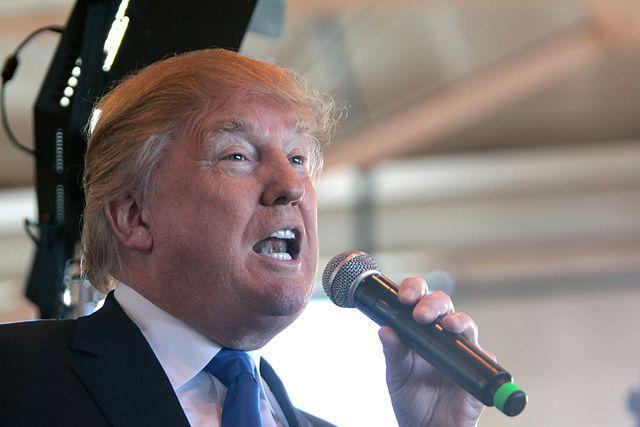
Frank Sinatra popularised ‘My Way’ in the late 1960s. Last week Donald Trump performed his own version by announcing his unilateral withdrawal from the Iran nuclear deal (JCPOA). It struck a very unpopular chord—especially among the European signatories to the deal and, unsurprisingly, the Iranians.
Iranian President Hassan Rouhani’s immediate response was to advise that Iran would stay with the deal if it and the other signatories, including Russia and China, could reach agreement that achieved the JCPOA’s objectives, as well as those of Iran.
Trump is very clearly on a mission, bluntly demanding that his international audience sing to his tune, or else. He technically had until 12 May to take his decision, but for reasons not yet public, chose to bring the date forward to 8 May.
One probable explanation is that he had made up his mind some time ago. By acting early, he put an end to the very intense, and to him uncompelling, representations by the European signatories and others—including Australia—to stay with the deal.
Trump’s real focus in withdrawing is to target what he described as the broader totality of ‘Iranian aggression’ and the ‘malign behaviour of the Iranian regime’. He identified this as including Iran’s ‘destabilising drive for regional hegemony’, its ‘support for terrorists, extremists and regional proxies’, ‘its publicly declared quest to destroy Israel’, ‘cyber-attacks against the US and its allies’ and ‘its threats to freedom of navigation in the Persian Gulf and Red Sea’.
Trump sees the JCPOA as one contributing factor, but only one, to Iran’s malign behaviour. He reiterated the failings of the deal to prevent Iran from ever obtaining nuclear weapons, nuclear-capable missiles and ICBMs. By claiming that the deal was negotiated by the Iranians ‘in bad faith’, Trump has, by implication, dismissed Iran’s commitment not to obtain nuclear weapons. He also ignores the IAEA’s repeated verifications since the deal came into force that Iran has adhered strictly to the restrictions on its nuclear development program.
In its totality, Trump’s statement is a very clear warning, both explicit and implicit, to Iran that unless it changes its ways, the US will break Iran’s economy and use all pressure to facilitate regime change.
Trump’s statement also sends a very clear message to the Europeans and others: US interests are first, theirs second. The European’s economic interests were blatantly targeted: US sanctions will be re-imposed, and if others doing business with Iran don’t ‘wind down’ their activities within a given period and comply fully with the sanctions, they ‘will risk severe consequences’.
Trump also indicated his intention to work through ‘a broad coalition of nations … to halt the Iranian regime’s destabilizing drive for regional hegemony’. The implication is that he’ll work outside any existing framework, and sideline those who don’t provide the level of cooperation and commit to his outcomes that he expects.
Trump’s decision is a major disappointment and source of immense frustration for the Europeans, but not a surprise. The expectation is that the Europeans, fully supported by the other JCPOA signatories, Russia and China, will do everything they can to keep the accord alive, and use it to address their mutual concerns about Iran’s regional activities.
But Trump’s economic threats, and the new sanctions that particularly target Iran’s energy, petrochemical and financial sectors, will hurt the Europeans as well as Iran. Even investment in areas not covered by sanctions will suffer because of ongoing concerns among international banks of alleged US Treasury ‘intimidation’ and fear that other areas could also become subject to sanctions.
Trump’s decision, and especially the way it has been taken, will have other negative effects on transatlantic relations. Sources say privately that respect and trust have been casualties, and that there’s a sense that European nations—individually and collectively—need to be more independent and self-sufficient, politically, economically and financially.
Trump’s decision also offers the opportunity for Russia and China to not only showcase their commitment to the JCPOA, but play a constructive role as contributors seeking to lessen regional tensions and conflict. Both, undoubtedly, will also seek to exploit transatlantic wedge politics.
Whether Trump’s withdrawal will affect his proposed meeting with North Korea’s Kim Jong‑un remains to be seen. Trump has used Iran to show that he’s tough, but also untrustworthy. China will have a major influence here. If the meeting does occur, it’s unlikely either side will give away anything of substance.
For Iran, the new economic sanctions are likely to cause significant hurt. Their foreign earnings from oil exports will suffer in particular. How this will affect the average Iranian, and whether it stirs a political reaction that could undermine the power of hardline conservatives, remains to be seen. In fact, the opposite could occur, producing increased solidarity among Iranians opposed to US interference and threats.
It must also be understood that the Rouhani government has little influence over the Iranian military and security services’ actions in neighbouring countries. They report directly to Ayatollah Ali Khamenei.
If political change is to occur in Iran, Trump and the other JCPOA signatories need Rouhani onside—not alienated—to negotiate change with the hardliners, as he was able to do during the Obama administration. That wasn’t easy then, and will be less so now. Unfortunately, one of the strongest bargaining chips the Europeans now have with Iran is their common dislike of Trump.